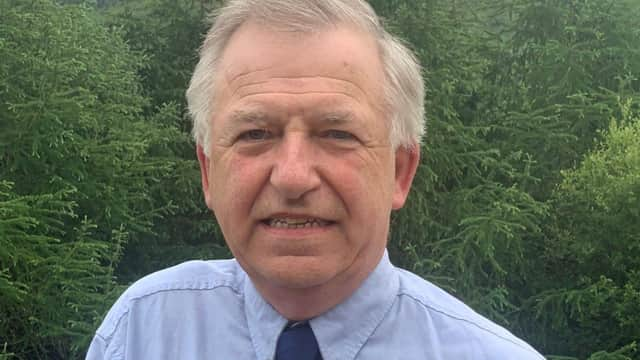AgriSearch responds to DAERA carbon budget consultation


AgriSearch’s Chairman Professor Gerry Boyle said: “The implementation of the Northern Ireland Climate Change Act will have a profound and wide-ranging impact on all dairy, beef and sheep farmers in Northern Ireland. The Trustees of AgriSearch considered it essential that AgriSearch respond to this consultation and highlight the need for a balanced and scientific approach to be taken.
“The importance of the farming industry to Northern Ireland cannot be over-stated and is widely recognised as the backbone of the NI economy. Agriculture, and the land-based economy, will play a key role in tackling climate change. It is uniquely placed to capture the major greenhouse gas, carbon dioxide, from the air and turn it into a wide range of food, fibres and fuels.
Advertisement
Advertisement
“Local farmers can and must be part of the climate change solution and with the right policy framework and support, farmers can rise to the climate and food production challenges. AgriSearch has been working on a number of initiatives to benchmark and improve farmers carbon footprint,” he said.
“It is important that a co-ordinated policy response is pursued. DAERA needs to consider its intended policy actions in a wider context and guard against unintended consequences/perverse outcomes. This includes ensuring the economic and social sustainability of farm businesses, the wider agri-food sector and Northern Ireland’s rural economy, in addition to consideration of other environmental issues (such as water and air quality and biodiversity).
“In considering the timescale needed to adopt new approaches in the livestock sector, DAERA needs to be cognisant that farmers are conditioned in their attitudes by previous DAERA and CAP policies. Plans to change the farm payments system are still at a very early stage and will take time to have an impact. Tax regimes and fiscal policies can also have a major impact. Farmers have also had bad experiences from previous government policy initiatives and support schemes (e.g. the Renewable Heat Initiative) which have been short-lived, due to U-turns in government policy, resulting in the early adopters being negatively impacted financially. Whatever schemes are put in place must be committed to by government and the entire supply chain for the long term, so farmers and others have the confidence to invest and make the necessary changes.
“AgriSearch consider it exceptionally difficult, if not impossible, to assess the realism of the proposed reduction targets without the publication of any analysis of the technical measures to achieve these targets and the likelihood of their adoption by farmers. AgriSearch believe that the debate on the targets would therefore be greatly enhanced if the technical analysis on the reduction options were published.
Advertisement
Advertisement
“While the government is obliged to treat different sectors of the economy such as agriculture, LULUCF (land use, land-use change and forestry), energy, transport and waste separately for purposes of the GHG inventory, farmers as land users, operate across three sectors in particular, namely, agriculture, LULUCF and energy, and it makes no sense to segment their activities as is being required. Moreover, it disincentives actions that might be undertaken in some sectors (e.g. Energy) to offset emissions that might arise in related sectors (e.g. Agriculture). It is important that credits earned by above/below ground sequestration in LULUCF, renewable energy etc., can be applied to agricultural emissions, which by their nature as a biological system can never reach net zero.
“In the consultation response AgriSearch also highlighted the need for further investment in science, including social science, as farmers will be asked to make significant changes to their businesses which many will find difficult to accept and implement. Furthermore, as with the GHG inventory, we are concerned that many scientists are working in silos, with insufficient connection or coordination across individual research projects.
“AgriSearch also highlighted that one of the main metrics used in the national greenhouse gas (GHG) inventory (GWP100) is flawed as it does not fully account for the shorter-term impacts of methane in the atmosphere, this leads to an overestimate of its contribution to global warming patterns.
"AgriSearch would encourage DAERA to review the application of a new metric (GWP∗), which takes the shorter lifespan of methane into account, in assessing the impact of the ruminant livestock sector on GHG emissions and to include GWP∗ assessments in setting targets for the agrifood sector for 2030 and beyond. Alternatively DAERA should consider the adoption of a twin-gas approach and establish a lower target for methane relative to other greenhouse gases,” added Professor Boyle.
The full response document can be viewed on the AgriSearch website.